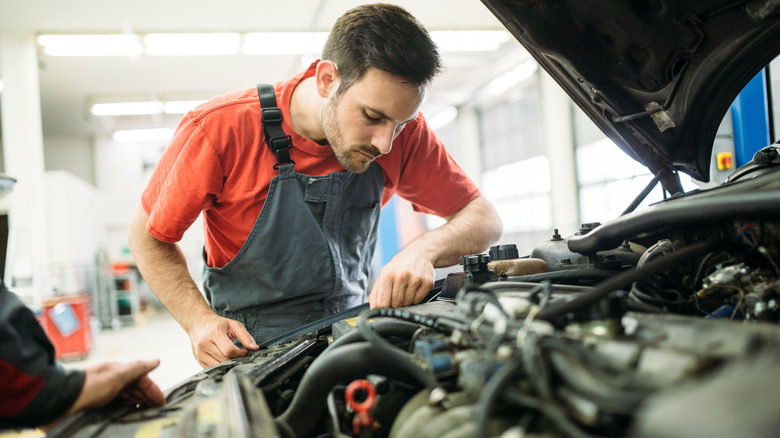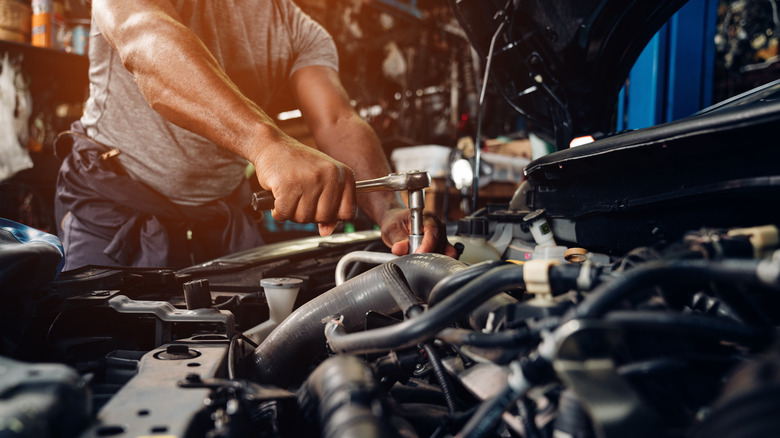Hydrolocked Engines: What Are They And Can They Be Fixed?
As any vehicle owner knows, routine engine maintenance is the best way to both ensure the long term health of the complex mechanism powering your car, truck, or SUV. However, even owners who choose to avoid bad habits that can damage an engine likely also know that maintaining an engine's health is no easy feat.
Of those perils, few can be quite as damaging as the element known scientifically as H2O. Indeed, there are few elements that can wreak more havoc on an engine than good old water. That may seem obvious, as many of the components under your vehicle's hood are made of metal, and water can be a corrosive element to metal. The potential for surface level rust aside, water can be even more damaging to your engine if it works its way inside, as too much will result in a state of hydrostatic lock.
You might also have heard that condition referred to as a "hydrolocked engine," which means your engine has seized up because too much water has entered the cylinders. This is a problem primarily because an internal combustion engine and its pistons are not designed to compress liquids. When too much water (or any other liquid) enters the engine, it eventually ceases rotation and locks up. When hydrolocking happens while driving, your vehicle will quickly stall out. Otherwise, the engine will soon fail to turn over entirely.
Hydrolocked engines can be fixed but should be avoided
Should your engine enter a hydrolocked state while you're driving, you'll likely hear a thud or crash the moment it seizes up. Given the amount of moving parts that make up an engine, it should go without saying that such a violent stoppage can cause serious damage if the engine is running, including damaged bearings, a cracked cylinder head, broken or bent connecting rods, and even a broken crankshaft.
Unfortunately, there are not many early warning signs that water may have entered your vehicle's engine. However, if your engine is sputtering or making thumping sounds when you're driving, water may be present and you'll need to get your vehicle serviced as soon as possible. In terms of avoiding hydrolock, the best ways may be to simply keep water away from your engine and air filter by not driving during severe rain events, and avoiding any deep puddles or standing water. Of course, the presence of coolant and engine oil can also cause hydrostatic lock, with those fluids potentially entering the engine via other damaged components.
Such issues can be caught early with routine professional checkups or even performing regular engine maintenance at home. However, even if your engine does lock up due to water, it can probably still be fixed. The repairs can be both pricey and lengthy, however, as they typically involve a mechanic performing extensive testing and outright replacing damaged components with new ones. Given the stakes, it's best to avoid the issue altogether if possible.

